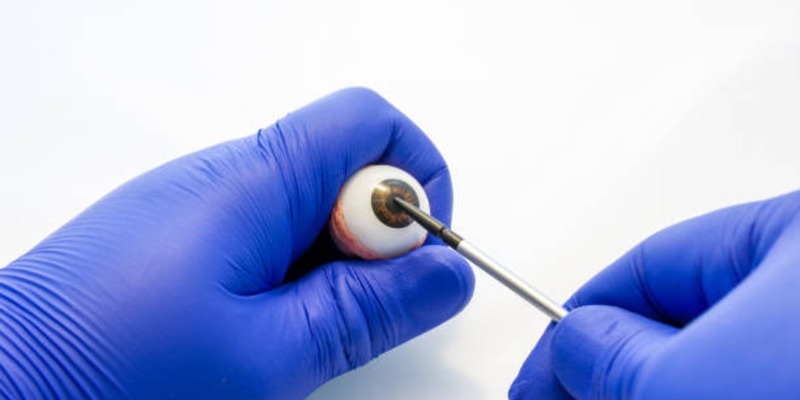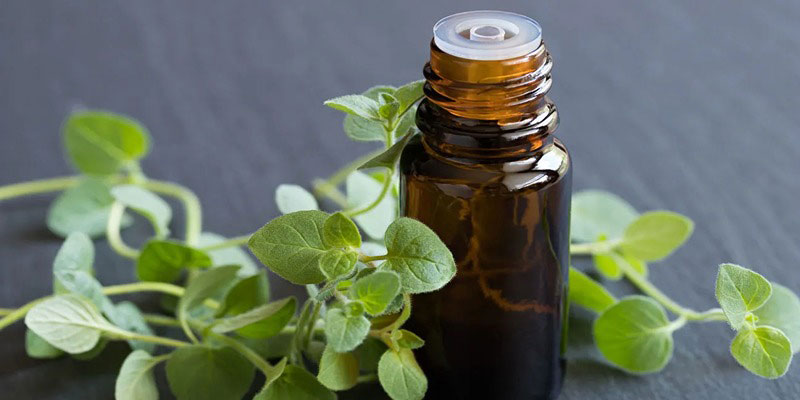Enhancing Health with Glutathione: Benefits and Boosting Methods
Nov 26, 2023 By Madison Evans
The strong chemical glutathione is produced naturally by our cells. It's really important for keeping healthy. A powerful antioxidant, this molecule neutralizes potentially dangerous substances called free radicals. Our cells may be damaged by them. Detoxification is an important process that glutathione aids with. It protects us from disease by strengthening our immune system. Reduced glutathione synthesis is associated with aging, stress, and poor dietary and lifestyle choices. Learning about it and making sure it's at a healthy level may improve health and wellness. This article will guide you through the advantages of glutathione, where to get it naturally, and how to increase your levels of this antioxidant.

Glutathione Benefits
Boosting Immune Function
The antioxidant glutathione is essential for maintaining a healthy immune system. An essential component in the body's defense against pathogens, it aids in the production and upkeep of white blood cells. Glutathione improves our immunity and fights against infections by increasing these cells. Additionally, it aids in maintaining a healthy immune response balance, which is important for preventing potentially dangerous inflammation.
Detoxification and Antioxidant Defense
Glutathione aids in detoxification, which is one of its primary activities. It transforms harmful compounds into those our bodies can excrete safely by binding to pollutants, heavy metals, and cellular waste. Because it is our principal organ for detoxification, this process is critical to the liver's health. Glutathione also acts as an antioxidant, removing harmful free radicals from the body. Oxidative stress, brought on by these unstable chemicals, may harm cells and cause a host of chronic illnesses. Glutathione aids cell protection and general health by neutralizing these free radicals.
Impact on Aging and Longevity
Additionally, glutathione has a major role in anti-aging and lifespan. Its antioxidant capabilities shield cells from free radical damage, which has a role in aging. This defense delays the deterioration that comes with becoming older and reaches critical organs and tissues as well. Glutathione is an antioxidant that has been linked to improved health and longer life expectancy in the elderly, according to research. In addition, glutathione aids in preserving mitochondrial activity, an essential process for cellular health and energy generation. Our mitochondria lose some of their efficiency with age, but glutathione may help maintain them in top shape, which might improve health and maybe add years to our lives.
Natural Sources of Glutathione
Dietary Sources
Glutathione levels may be enhanced by consuming certain foods. Onions, garlic, and cruciferous veggies like broccoli, Brussels sprouts, and cauliflower are among these sulfur-rich veggies. The production of glutathione is aided by these greens. Also, vitamin C and E-rich foods like spinach, strawberries, almonds, and oranges help recycle glutathione and keep it active. Undenatured or minimally processed whey protein, which is high in cysteine—one of glutathione's building blocks—also helps produce it. You may increase your body's glutathione levels in a natural way by eating these foods.
Role of Gut Health in Glutathione Production
Glutathione production is greatly influenced by gut health. Glutathione production nutrients are better absorbed in a stomach that is healthy. Glutathione synthesis may be enhanced by consuming fermented foods like yogurt, kefir, and sauerkraut, which contain probiotics. In order to produce glutathione, these bacteria aid in the digestion and absorption of nutrients. In addition, glutathione levels are indirectly supported by a healthy gut, which decreases inflammation and oxidative stress. Consequently, for maximum glutathione synthesis and general health, it is critical to maintain a balanced diet that is high in fiber, probiotics, and other minerals.
Increase Glutathione: Lifestyle Adjustments
Exercise and Physical Activity
Glutathione levels may be elevated with consistent physical activity and exercise. Exercising causes your body to use more oxygen, which in turn triggers the creation of free radicals. But in order to counteract these free radicals, your body responds by producing more glutathione. Glutathione production may be enhanced with regular, vigorous exercise such as brisk walking, cycling, swimming, and strength training. Due to the potential negative impact of too strenuous physical activity, it is essential to strike a balance between the two.

Stress Management Techniques
Glutathione levels may be diminished by enduring chronic stress. Keeping your glutathione levels up depends on how well you handle stress. A person's physiological and psychological reactions to stress may be mitigated by practices such as mindfulness, meditation, yoga, and deep breathing techniques. Glutathione synthesis may be severely impacted by the stress hormone cortisol, although these measures assist in reducing cortisol levels. Glutathione production is one of the body's inherent repair and regeneration mechanisms that may be aided by getting a good night's sleep on a regular basis. You may aid in the maintenance of healthy glutathione levels and enhance general well-being by making these stress management practices a part of your daily routine.
Glutathione Boosting Methods
Supplements: Pros and Cons
Taking a glutathione supplement is a common way to raise glutathione levels. Medication comes in several forms, including tablets, powders, and sprays for the mouth. Their ease of consumption and incorporation into regular routines is the main advantage. People who suffer from certain diseases or nutritional deficits may find that supplements help them the most. But whether or not taking supplements orally works is up for debate. There is some evidence that the intestinal absorption of glutathione is poor, which might reduce its efficacy. In addition, there is a large range in supplement quality and content; some may include fillers or subpar components. It is best to talk to a doctor before beginning supplementing, and it is essential to purchase high-quality products from reputed companies.
Intravenous Glutathione: An Overview
Bypassing the digestive system, glutathione is administered straight into the circulation by intravenous (IV) injection. Certain medical illnesses, such as Parkinson's disease and detoxification, are common reasons for their usage in medical settings. One benefit of intravenous glutathione is that it is highly bioavailable, meaning that the body can absorb and use it right away. A trained medical practitioner, however, should provide intravenous treatment. It requires frequent trips to the clinic, which may be both time-consuming and expensive. Although uncommon, side effects might vary from person to person and may include allergic responses. Thus, while intravenous glutathione might rapidly increase levels, it might not be the best or even required choice for everyone.
Conclusion
As an essential antioxidant, glutathione improves immunity, aids in detoxification, and even slows down the aging process. It exists in our bodies naturally, but we can increase our levels by eating foods that contain it, maintaining a healthy digestive system, and making changes to our lifestyle, such as exercising regularly and effectively managing stress. Glutathione supplementation and intravenous treatment are two other options for raising glutathione levels; each has its own pros and downsides. Glutathione is a powerful antioxidant that may improve one's health and vitality if one takes the time to learn about and implement these tactics.







